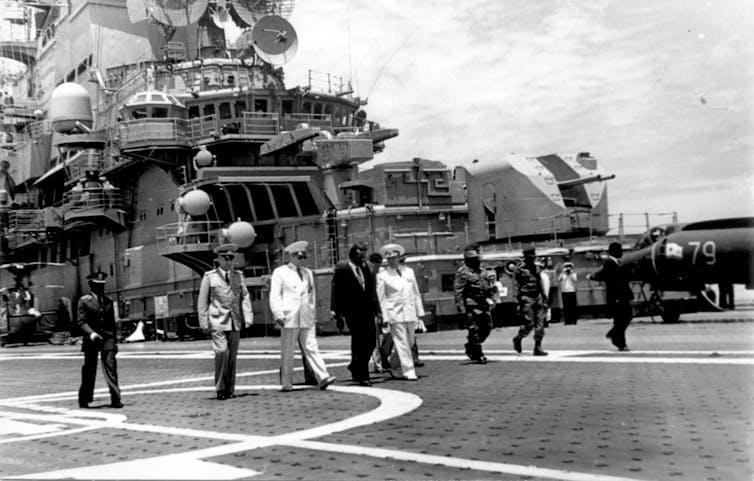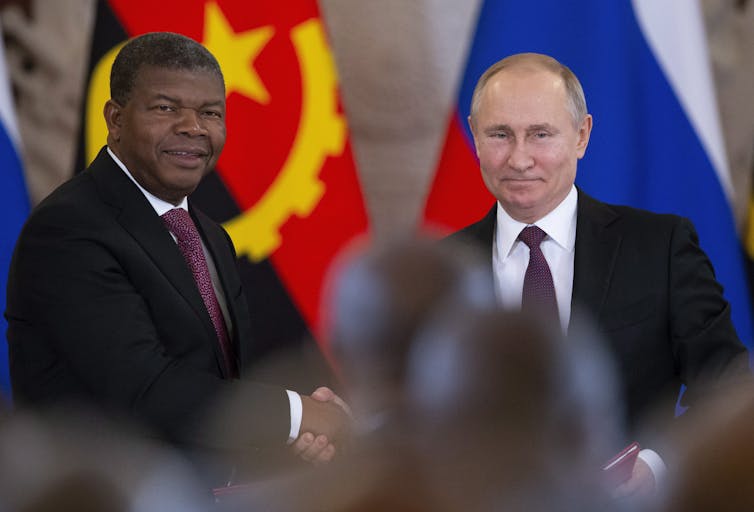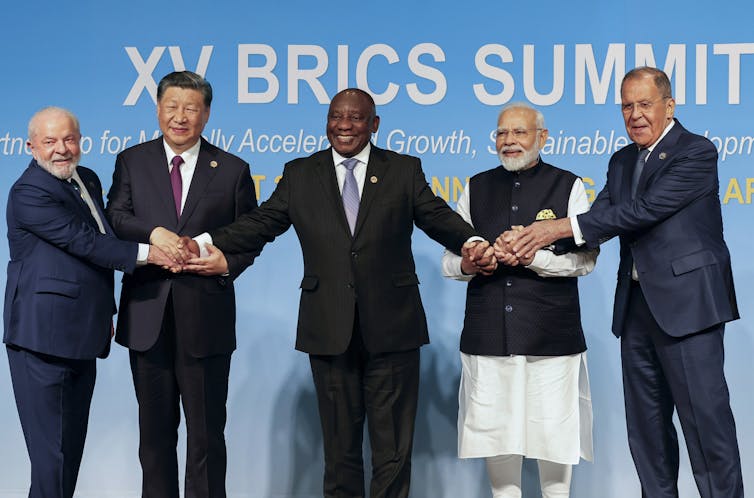Russian president Vladimir Putin’s recent visits to both North Korea and Vietnam received significant attention in the western media. So, too, did a recent visit by Russian warships to Cuba.
Before the outbreak of the full-blown war in Ukraine in February 2022, such visits would have likely received much less attention. Now, they come amid western attempts to isolate Russia on the world stage. However, it seems these efforts have had little effect in undermining many of Russia’s international relationships.
While most European nations are on board with western sanctions, many other countries — particularly in the Global South — have maintained economic and political links with Russia. Why that is the case owes much to both historical ties and contemporary circumstances.

Old friends
Many of Russia’s enduring international relationships are ones with long histories. When it comes to North Korea and Vietnam, governments in both those states exist in their current forms thanks in part to military and political support from the former Soviet Union during the Cold War.
In the case of Cuba, it is certainly possible that Fidel Castro’s government would have been overthrown after the 1959 revolution had it not been for Soviet political and military support. In 1961, the CIA backed an attempt to overthrow Castro that failed. Subsequent Soviet support for Castro — even after the Cuban Missile Crisis — remained considerable.
In 1975, as Portugal’s colonial empire collapsed, the Soviet Union helped the People’s Movement for the Liberation of Angola (MPLA) seize power in Angola. Throughout the late 1970s and 1980s the Soviet Union — and Cuba — backed the MPLA in the face of opposition supported by the United States and apartheid South Africa.
Elsewhere in Southern Africa, nationalist and anti-colonial movements also received support from the Soviet Union. The African National Congress in South Africa and Namibia’s SWAPO Party operated from bases in Angola and both received Soviet support.
Both parties have remained the dominant political force in their respective countries since the fall of apartheid in South Africa. In both cases, there is still a recognition of the Soviet Union’s historical support.
After the collapse of the Soviet Union in 1991, the Russian government allowed some Cold War relationships to wither to some extent. For much of the 1990s, President Boris Yeltsin’s government was more concerned with stabilizing the economic and political situation at home, and deepening ties with the West, rather than maintaining Cold-War era relationships.

Keeping friendships alive
From the late 1990s, the Russian government started to put more effort and money into reviving Soviet-era relationships. What has helped sustain many relationships are personal and military connections going back to the Cold War.
Tens of thousands of Soviet personnel — both military and civilian — spent time in other countries as younger people. More than 10,000 served at some point in Angola alone. Russian veterans organizations, such as the Union of Angola Veterans, maintain important links between the countries concerned today.
Many young people from countries across the globe studied and trained in the Soviet Union. Some of them are now leaders in their home countries. One example is the current president of Angola, João Lourenço, who attended university in the Soviet Union.
The Soviets typically supplied these countries with arms and military equipment. The ongoing maintenance and upgrading of this equipment is a further driver of continued ties.
After the collapse of the Soviet Union, many of these countries sought better relations with the West. Nonetheless, Cuban relations with the U.S. have remained strained, and American sanctions from the Cold War period have remained in effect for decades. The U.S. is also at the forefront of efforts to isolate North Korea. In both Cuba and North Korea, it is perhaps unsurprising that they would be keen to rekindle and maintain relationships with Russia.

Balancing between Russia and the West
In the case of Vietnam, relations with the U.S. have improved significantly since the Cold War and the destruction the Americans wrought on the country during the Vietnam War. However, Vietnam’s nominally communist government is hardly glowingly endorsed by the U.S. Despite some reconciliation with the Americans., Vietnam isn’t willing to drop its relationship with Russia at the behest of the West.
There are also important economic dimensions to many of Russia’s contemporary international relationships, particularly where discounted Russian oil is concerned.
Many governments with which Russia has good relations lack the sort of liberal-democratic credentials that are seen as desirable in the West. That certainly is the case for North Korea, Vietnam and Cuba. However, seeing Russia’s international relationships as a case of authoritarianism versus democracy is simplistic.

Countries like Namibia and South Africa are democracies. Their economic relations with Russia are relatively limited. However, a shared desire not to be beholden to the West plays a significant role in their ongoing relationships.
Russia’s growing ties with China helps strengthen its connections with other states through international organizations such as BRICS. The recent expansion of BRICS — and the possibility of other Russian allies like Venezuela joining it — point to a growing desire in some parts of the world for alternatives to a western-dominated international system.
Whether the U.S. and its allies like it or not, the world is becoming more multipolar than it was at the end of the Cold War.
The western response to Russia’s war in Ukraine has certainly crystallized European opposition to Russia. Elsewhere in the world, however, western actions and hypocrisy over the situation in Gaza have given many pause for thought, and possibly, even emboldened some to develop their ties with Russia.

